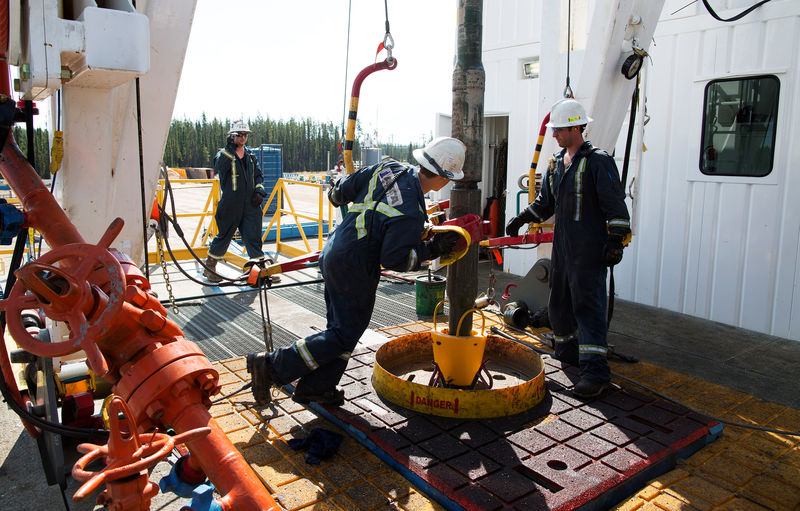(Bloomberg Opinion) -- There’s one hope for oil market bulls facing into the abyss of the 9.3 million barrels-a-day demand slump from the spread of Covid-19: The aftermath will see a renaissance in car-driving.
“People will use public transport less” because of fears about picking up infection on crowded trains and buses, Cuneyt Kazokoglu, head of oil demand analysis at energy consultancy FGE, wrote in the Financial Times this month. “Increased reliance on cars once the lockdown measures ease will support petrol demand, potentially for years to come.”
There’s an intuitive logic to that proposition, and even signs that it might be backed up by data. Chinese cities are already seeing traffic jams on a par with pre-coronavirus times, according to data from TomTom International BV. With the pandemic still raging, the U.S. Energy Information Administration’s weekly petroleum status report has been showing a pick-up in gasoline consumption since its lows last month, though it’s still running 40% below where it was a year ago.
Unfortunately for oil bulls, there have been plenty of other incidents in recent decades which might have made people give up public transport for cars — and in every case, the impact has been brief and limited.
In 2003, severe acute respiratory syndrome swept through Hong Kong. Public transport usage certainly dipped during the outbreak’s peak months, but soon resumed its upswing. Until last year’s protests and the latest coronavirus put a dent in things, patronage on the Mass Transit Railway was running at around double pre-SARS levels.
You saw a similar picture after terrorist attacks on rush-hour public transport in Madrid in 2003 and London two years later. Ridership dipped temporarily, but cars failed to capitalize on the shift. In London, cycling and overground rail were probably a greater threat to the Underground’s share. The sarin gas attacks in Tokyo in 1995 made barely any perceptible difference to public transport use, even in the short term.
That shouldn’t be very surprising. People don’t pack themselves into crowded commuter carriages for the pleasure of it, but because it’s by far the most convenient way of getting around most cities. Finding a substitute for public transportation is so difficult that closures of Hong Kong’s MTR last year were occasionally enough to shut down anti-government demonstrations by stopping protesters from getting there. Many cities actively discourage cars. In some, you have to get on a waiting list or pay handsomely for a license to own a car, or find yourself restricted to driving on particular days of the week.
It's far easier to put on a face mask and take care to wash your hands than to change the shape of your daily commute. To the extent that personal work habits change at all, it’s far more likely that the millions currently working from home will find ways to avoid rush-hour travel altogether.
That should be troubling for oil producers. As my colleague Julian Lee has written, there are more and more signs that oil demand is approaching a peak far sooner than the dates in the 2030s used by most analysts. Royal Dutch Shell (LON:RDSa) Plc Chief Executive Officer Ben van Beurden, for one, thinks we may have already passed that point.
In rich countries, oil demand peaked all the way back in 2005, and the International Energy Agency expects consumption of gasoline, which makes up the largest slice of the barrel, to peak in the late 2020s even under current policies.
If anything, we're likely to see more people switch away from driving in the near future. A greater distance of metro rail is being built in the decade through 2022 than in the 150 preceding years, mostly in Asia. Electric cars and ever-tightening fuel efficiency standards are also ensuring that the cars on the road use less and less fuel.
Even BP (NYSE:BP) Plc, which could be expected to take a bullish view of things, sees just 2.3 million barrels per day of road fuel demand growth between now and a peak in 2035. Over the past decade, that segment grew by 7.8 million daily barrels.
With the lockdown likely to put a hole in jet fuel demand for the next couple of years, the window in which oil demand might resume its upward growth before starting terminal decline is looking perilously short. Oil producers shutting down output to cope with the current supply glut may find they never get a chance to reopen.
This column does not necessarily reflect the opinion of the editorial board or Bloomberg LP and its owners.
David Fickling is a Bloomberg Opinion columnist covering commodities, as well as industrial and consumer companies. He has been a reporter for Bloomberg News, Dow Jones, the Wall Street Journal, the Financial Times and the Guardian.
©2020 Bloomberg L.P.
